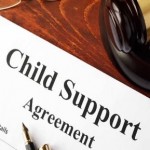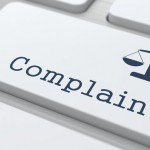 $44 billion is a lot of green. That is also the amount of revenue the legal marijuana industry is expected to generate in the U.S. by 2020. As more states permit by ballot initiative or legislation either the medical or recreational sale and use of pot, complex regulatory and taxation regimes have been established to keep tabs on growers, distributors, and dispensaries.
$44 billion is a lot of green. That is also the amount of revenue the legal marijuana industry is expected to generate in the U.S. by 2020. As more states permit by ballot initiative or legislation either the medical or recreational sale and use of pot, complex regulatory and taxation regimes have been established to keep tabs on growers, distributors, and dispensaries.
Complicating things even more is the fact that most legal marijuana businesses operate on a cash only basis since pot remains classified as a Schedule I controlled substance at the federal level. But all that cannabis cash needs to be accounted for, and CPAs across the country find themselves in high demand by the marijuana industry, raising questions about whether providing accounting services for businesses which technically violate federal law raise any ethical or licensing issues.
State Boards Largely Saying OK
Accounting boards in many states with established medical or recreation marijuana programs have weighed in on the matter, largely concluding that providing services to a state-legal marijuana enterprise is not in and of itself problematic or a basis for disciplinary action. All state boards who have issued opinions on the subject emphasize that all other applicable professional standards must be adhered to, caution about possible federal law issues, and advise accountants to seek counsel before a marijuana engagement. That said, the following excerpts from some of those boards make it relatively clear that if pot is legal where the services are being provided, the board won’t be taking any action based simply on the provision of those services:
- Arizona. “…the Arizona Board of Accountancy has concluded that merely accepting an engagement to provide accounting services to a medical marijuana dispensary does not, on its face, constitute an act discreditable to the profession and it will not pursue independent disciplinary action against an Arizona CPA registrant based solely on such acceptance.”
- Colorado. “It is the Board’s position that offering to perform or performing professional services for clients in the marijuana industry who are in compliance with Colorado Medical Marijuana Code and the Colorado Retail Marijuana Code is not in itself specifically prohibited by the Accountancy Act…”
- Connecticut. “…in the absence of such a determination by the courts, the Connecticut Board of Accountancy will not pursue independent disciplinary action against Connecticut CPAs or CPA firms who are operating within the bounds of state law” as to marijuana.
- Florida. “… the provision of public accounting services… to marijuana-related businesses in states where marijuana-related businesses have been legalized, in the absence of a criminal conviction of the certified public accountant for the provision of those services, in and of itself does not constitute a lack of good moral character.”
- Maryland. “…in light of the current state of Maryland and Federal law, the Board will take no regulatory action against a CPA or firm solely on the basis that the CPA or firm provides services to a business involved in the sale or distribution of marijuana, provided that the business is operating legally under applicable state law.”
- Nevada. “After careful consideration, the Board has determined that Nevada licensees and firms that elect to provide services to the marijuana industry legalized in any state in which the licensee practices will not face action by the Board based solely on the fact that the licensee or firm is providing such services.”
According to the AICPA, in a very helpful and comprehensive issue brief on the subject, “As of May 2015, the AICPA is not aware of any state boards of accountancy that have taken action against a CPA for providing services to a marijuana business, nor has the AICPA Professional Ethics Team received any referrals from state boards for such action.”
What About Illinois?
Here in Illinois, 2014’s Compassionate Use of Medical Cannabis Pilot Program Act created a four-year roll out allowing sick and dying patients suffering from debilitating medical conditions access to medical cannabis. The Act permits up to 22 cannabis-growing operations and 60 licensed retail dispensaries to operate across the state.
The Illinois Department of Financial and Professional Regulation (IDFPR) registers, licenses and regulates the dispensaries, and the Illinois Department of Revenue regulates marijuana taxation, which is subject to privilege taxes, occupation taxes and other industry specific surcharges.
Illinois’ Administrative Rules supporting the medical cannabis program effectively mandate that dispensaries retain CPAs as they must engage in, and submit to the IDFPR, annual audits compiled and certified by an auditor or CPA.
So far, however, the Illinois Public Accountant Registration and Licensure Committee has yet to issue guidance on serving the medical marijuana industry in the state beyond advising CPAs to seek legal counsel before deciding to whether to provide services to a medical marijuana business.
While CPAs should definitely follow the Committee’s advice and seek out a professional licensing attorney for advice, I would anticipate that as Illinois’ medical marijuana program grows, and CPAs see an increasingly fertile area for business, the Committee will issue an opinion largely in line with states that have already concluded that serving the legal weed industry won’t harsh an accountant’s mellow from a disciplinary perspective.
Louis Fine: Chicago CPA License Defense Attorney
As a former Chief Prosecuting Attorney and administrative law judge for IDFPR, I have seen the serious consequences that an adverse enforcement decision can have on accountants and other professionals who suddenly find their future in disarray. I understand how and why the Department decides to pursue investigations, how it handles negotiations, and how to approach formal proceedings in a way that gives my clients the best possible chance of a positive and expeditious outcome.
Please give me a call at (312) 236-2433 or fill out my online form to arrange for your free initial consultation. Together, we will get you back to your clients and your career.












